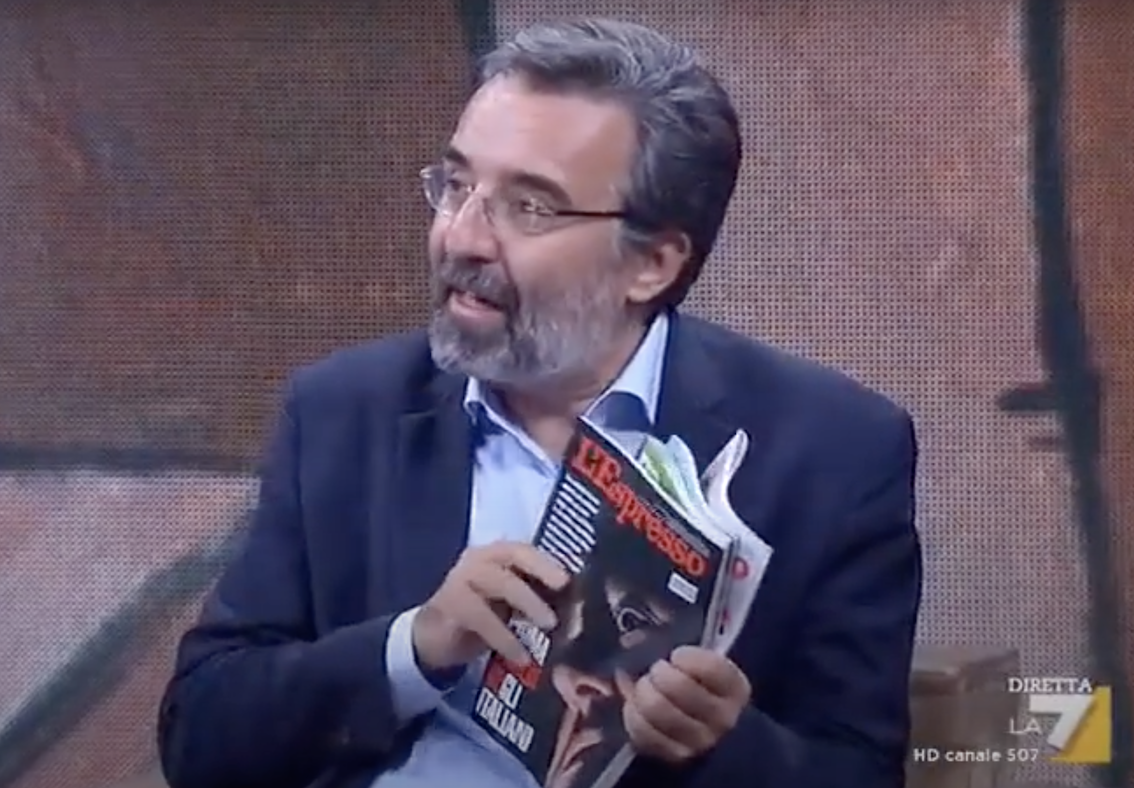It’s a really complicated issue, because in an intricate round of information and contradictions we find the Pope, a cardinal and several million euros. That of Cardinal Giovanni Angelo Becciu is a matter already known for a few months. In short, it can be summed up as follows: Becciu was forced to resign by Pope Francis after being accused of “peculato”. The offense of “peculato” is defined as “embezzlement, for the benefit of one’s own or others, committed by a public official who has possession of it by reason of his office”.
But accused by whom? Well, it is precisely from this simple question that everything takes shape, because it does not appear that Becciu is being investigated by either the Vatican or the Italian judiciary. It is not in fact a judge who accuses him, but a weekly: L’Espresso, directed by Marco Damilano.
The events refer to 24 September 2020, the day of the audience between Becciu and the Holy Father in which Francis, instead of the usual routine speeches, stuns him with the invitation to give up his position and leave the room. From that moment, from those steps taken through the corridors of the Holy See after having just received an unexpected and lightning order, the pillory begins for Becciu.

Let’s look at this in order. That September 24th is a rainy Thursday and at 6 pm Cardinal Becciu has an audience scheduled with the Pope. It is not an exceptional call, the two meet often and are connected, in addition to a dense working relationship, also by a deep and lasting friendship. So Becciu enters unconcerned in the sacred rooms of the Pontiff but notices something unusual. On Francesco’s desk, there is an article entitled,” The Sword of Francis Against the Corrupt”. The newspaper that wrote it is L’Espresso, but it is he who is the protagonist of those densely printed lines of ink. For almost half an hour, from 6 pm to 6.25 pm, Becciu hears, from the Pope’s mouth, the words that will force him to depart. He leaves the Vatican’s walls and enters the endless tunnel of the media process.
It is from here, from this article brandished by the Holy Father in an audience with an unexpected outcome, that the first suspicious information arises. L’Espresso, as mentioned, had found the scoop. A story told exclusively that accused the cardinal of fraud against the Papal States. But there’s more. At 10.12 am on September 24th, L’Espresso’s website creates an article entitled “That’s why Cardinal Becciu resigned. Money of the poor going to his brother and offshore: the cards of scandal. And the Pope asks for probity”, signed by Massimiliano Coccia. A few hours pass and, at 3.44 pm, a second article entitled, “This is why Cardinal Becciu resigned: L’Espresso on Sunday 27 September”, signed by the journalist Angiola Codacci Pisanelli, is created and published by the same site.
And that’s how the questions start to proliferate. How did L’Espresso know at 10 am that Becciu would resign, when the Pope’s audience with the Cardinal, in which the communication took place, was at 6 pm? Either we want to believe in the clairvoyance of the Roman editorial staff, or it is clear that someone has leaked. Who? Impossible to have a face and name, but certainly not a humble attaché to the Vatican secretariat.

Becciu decides to take legal action. His lawyers sued L’Espresso, writing that “the articles present an incisive charge that is negative for the image and decorum of the Cardinal” and that, “the presentation to the Holy Father of the article then appeared in the weekly ‘L’Espresso’ on 27.09.2020, and of the facts contained in it, constituted the cause of the request for resignation”.
For a few weeks the news seems to be languishing in the shadows until Vittorio Feltri returns to write about it in the pages of Libero. He does so with precise and detailed articles, raising questions that need to be answered. With a counter-investigation, he tries to rehabilitate Becciu. In particular, Feltri asks L’Espresso 12 questions. Libero‘s articles, however, do not follow the media hype that had accompanied the accusations made at the end of September by Damilano’s weekly. In fact, they meet with silence. The press doesn’t seem to care anymore. Or, perhaps, it is the new twists assumed by the facts that have alienated the interest of the media.

Unexpectedly, the Pope takes the first step after all these facts emerge. Francis, after declaring during his homily that he had sympathy for “the apostles who stray”, phoned Becciu directly. A sign of détente in which the Pontiff, according to Becciu, would had uttered words that were “very different from those of journalists”. Yet it was he, Bergoglio, who proceeded in haste that afternoon of September 24 to take away the rights of the cardinalate from Becciu. Why, then, were his actions so fast and so drastic? Rumors emerge about a plot, a conspiracy conceived by the highly placed members of the conclave, in collusion with the journalists of L’Espresso, to take out a colleague with high positions within the walls of St. Peter.
What could be the reason? We still don’t know. Only one thing is certain. The story won’t end there. Indeed, this seems to be just one of the first chapters in a series that could shake the Vatican’s rigid institutions from their foundation.












